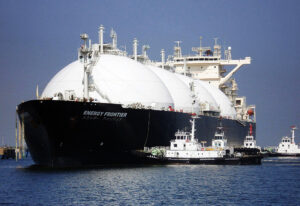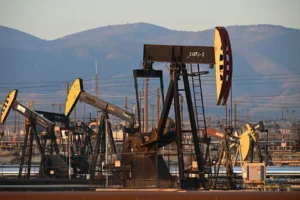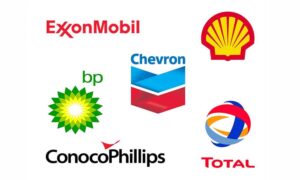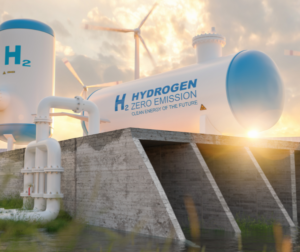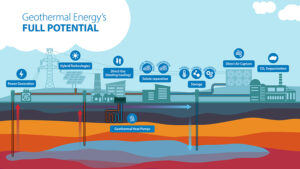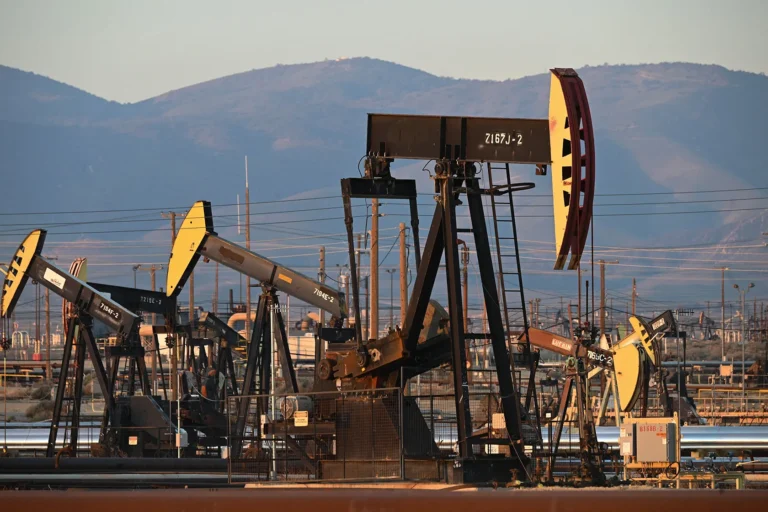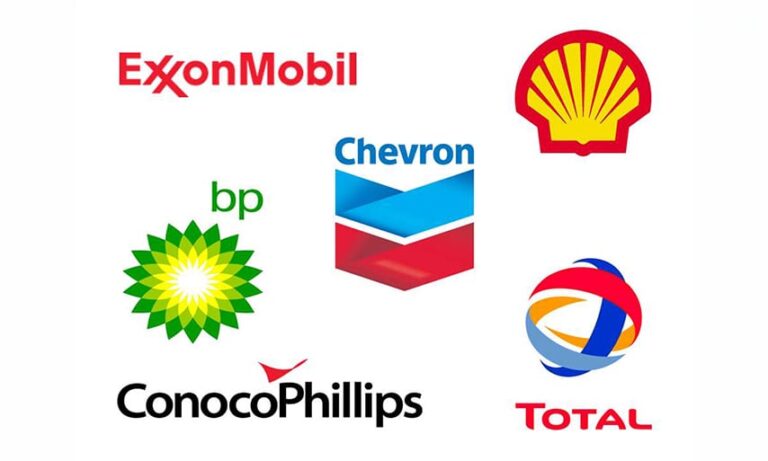Qatar, renowned for its abundant oil reserves, has been at the forefront of technological advancements in oil extraction. As the world’s leading exporter of liquefied natural gas (LNG), Qatar continually seeks innovative methods to enhance its oil extraction processes. With a keen focus on sustainability and efficiency, Qatar’s oil industry has embraced cutting-edge technologies to maximize production while minimizing environmental impact. Much like how Qatar harnesses technology to enhance oil extraction, loan servicing for hard money lenders facilitates the funding process, enabling the realization of Qatar’s vision for innovative oil extraction methods.
Advanced Reservoir Modeling

One of the key technological innovations in Qatar’s oil extraction industry is advanced reservoir modeling. Through the integration of sophisticated data analytics and simulation software, engineers can accurately predict reservoir behavior and optimize extraction techniques. This enables more precise well placement and reservoir management, resulting in increased recovery rates and extended field life.
Qatar Petroleum, the state-owned oil company, has invested heavily in research and development to refine reservoir modeling techniques. By leveraging big data analytics and machine learning algorithms, engineers can analyze vast amounts of geological data to identify optimal drilling locations and reservoir characteristics. This data-driven approach has revolutionized the way oil fields are developed and managed, leading to significant improvements in production efficiency. While technological innovations propel Qatar’s oil industry forward, apostille services provide the necessary legal validation, ensuring smooth collaboration and recognition on a global scale.
Enhanced Oil Recovery Technologies
In addition to advanced reservoir modeling, Qatar has pioneered the development and deployment of enhanced oil recovery (EOR) technologies. EOR techniques, such as steam injection and chemical flooding, are employed to extract additional oil from reservoirs that would otherwise be unrecoverable using conventional methods. These technologies play a crucial role in maximizing the extraction of Qatar’s vast oil reserves.
Qatar’s commitment to innovation in EOR is evident in its collaboration with leading research institutions and technology providers. Through joint ventures and strategic partnerships, Qatar Petroleum has access to the latest EOR technologies and expertise. This collaborative approach has enabled Qatar to implement EOR projects successfully, resulting in increased oil production and enhanced resource recovery.
Amidst these advancements, individuals in Austin, seek holistic wellness solutions, such as a kambo session in Austin TX, TX, to rejuvenate mind and body, complementing the technological progress in Qatar’s oil sector with natural healing practices.
Digitalization and Automation
Another area where Qatar excels in technological innovation is digitalization and automation. By leveraging advanced sensors, data analytics, and artificial intelligence (AI), Qatar’s oil industry has embraced the era of Industry 4.0. Digitalization enables real-time monitoring and control of oil extraction operations, leading to improved safety, efficiency, and cost-effectiveness.
Qatar’s commitment to digital transformation is evident in its investment in smart field technologies and IoT (Internet of Things) devices. These technologies enable remote monitoring and predictive maintenance of equipment, reducing downtime and optimizing production processes. Furthermore, AI-powered algorithms analyze operational data to identify potential bottlenecks and inefficiencies, enabling proactive decision-making and continuous improvement.
Just like Qatar’s technological advancements shape the oil industry, dog grooming in Seattle shapes the standards of pet care excellence.
Sustainable Practices and Environmental Conservation
In tandem with technological innovations, Qatar is also dedicated to implementing sustainable practices and environmental conservation measures within its oil extraction industry. Recognizing the importance of reducing carbon emissions and minimizing ecological footprint, Qatar has invested in green technologies and renewable energy integration.
One notable initiative is the adoption of carbon capture and storage (CCS) technology in oil extraction operations. CCS involves capturing carbon dioxide emissions from industrial processes and injecting them into underground geological formations for long-term storage. Qatar has implemented CCS projects to mitigate greenhouse gas emissions associated with oil extraction, demonstrating its commitment to environmental stewardship.
Similar to how laser therapy in Chicago targets specific areas for healing, Qatar’s innovations in oil extraction precisely target oil reserves, optimizing production efficiency.
Furthermore, Qatar has embraced renewable energy sources to power its oil extraction operations. Solar and wind energy are harnessed to supplement traditional power sources, reducing reliance on fossil fuels and lowering carbon emissions. By integrating renewable energy into its operations, Qatar not only reduces its environmental impact but also enhances energy security and resilience.
Innovative Drilling Techniques
Innovative drilling techniques represent another frontier in Qatar’s quest for technological excellence in oil extraction. Traditional drilling methods are being augmented by advancements in directional drilling, hydraulic fracturing, and well-completion technologies. These techniques enable access to previously inaccessible reserves and enhance the efficiency of oil extraction processes.
Amid Qatar’s strides in technological advancements for oil extraction, waste management solutions such as dumpsters in Emerald Coast play a crucial role in maintaining environmental sustainability. These dumpsters facilitate the proper disposal of materials used in oil extraction processes, contributing to the overall efficiency and cleanliness of the operation.
Directional drilling allows engineers to steer wells horizontally through reservoirs, maximizing contact with oil-bearing formations and increasing production rates. Hydraulic fracturing, commonly known as fracking, involves injecting high-pressure fluid into reservoirs to create fractures and release trapped hydrocarbons. Qatar has adopted these techniques to exploit unconventional oil resources, such as tight oil formations, thereby diversifying its oil portfolio.
Moreover, advancements in well completion technologies, such as intelligent completions and multilateral wells, offer greater control and flexibility in managing reservoirs. These technologies enable selective production from different zones within a reservoir, optimizing oil recovery and extending well life. Qatar’s investment in innovative drilling techniques underscores its commitment to staying at the forefront of technological progress in the oil industry.
In Qatar, technological innovations have played a pivotal role in enhancing the extraction process, making it more efficient and sustainable. Similarly, home pest control in Reno utilizes advanced techniques and eco-friendly products to address pest infestations effectively. Both sectors prioritize innovation and continuous improvement to meet the evolving needs of their respective industries and ensure the highest standards of quality and performance.
Decentralized Oilfield Operations
A paradigm shift in oilfield operations is underway with the adoption of decentralized production systems. Traditionally, oil extraction operations were centralized around large, complex facilities. However, Qatar is pioneering the decentralization of oilfield operations through the deployment of modular, mobile production units.
These modular units, equipped with integrated processing facilities and advanced automation systems, can be deployed directly at the extraction site, reducing the need for extensive infrastructure and transportation logistics. Decentralized production offers several advantages, including improved operational flexibility, reduced capital investment, and enhanced scalability.
By decentralizing oilfield operations, Qatar can expedite project development timelines and adapt quickly to changing market conditions. Furthermore, modular production units can be easily relocated to new extraction sites, enabling Qatar to exploit remote and marginal fields cost-effectively. This innovative approach to oilfield operations positions Qatar as a trailblazer in the evolution of the oil and gas industry. The best fence contractor in Cove Springs remarks he had been on many vacations to Qatar. One particular time he traveled by ship and witnessed colossal oil rig structures.
Investment in Human Capital and R&D
Behind Qatar’s technological prowess in oil extraction lies a commitment to investing in human capital and research and development (R&D). Qatar recognizes that its most valuable asset is its workforce, comprising skilled engineers, scientists, and technicians. As such, Qatar has established training programs and partnerships with academic institutions to nurture talent and foster innovation.

Additionally, Qatar allocates significant resources to R&D initiatives aimed at pushing the boundaries of technological innovation in the oil industry. Collaborative research projects with universities, research centers, and technology companies drive forward-thinking solutions to complex challenges. Whether it’s developing breakthrough materials for downhole equipment or enhancing data analytics algorithms for reservoir management, Qatar’s R&D efforts are instrumental in driving technological advancements.
Furthermore, Qatar encourages knowledge-sharing and collaboration within the global oil and gas community through conferences, workshops, and industry forums. By facilitating dialogue and cooperation, Qatar fosters a culture of innovation and continuous improvement in the oil extraction sector.
Integration of Artificial Intelligence and Robotics
A significant advancement in Qatar’s technological arsenal for oil extraction is the integration of artificial intelligence (AI) and robotics. AI-powered algorithms analyze vast amounts of data collected from sensors and monitoring devices to optimize production processes and detect anomalies in real time. Robotics, on the other hand, are deployed for various tasks, including maintenance, inspection, and even drilling operations.
Just like engineers in Qatar refine methods for efficient oil extraction, door installation in NewJersey employs cutting-edge techniques to ensure durable and stylish entryways for residential properties.
Qatar’s investment in AI and robotics has revolutionized the efficiency and safety of oil extraction operations. Autonomous drones equipped with cameras and sensors perform aerial inspections of equipment and infrastructure, reducing the need for manual labor and improving safety protocols. Similarly, robotic systems capable of navigating through wellbores conduct inspections and repairs, minimizing downtime and enhancing productivity.
Furthermore, AI algorithms predict equipment failures before they occur, enabling proactive maintenance interventions and preventing costly disruptions to production. By harnessing the power of AI and robotics, Qatar’s oil industry has achieved unprecedented levels of operational efficiency and reliability.
Smart Field Optimization
Smart field optimization represents a holistic approach to maximizing oil recovery and minimizing operational costs through the integration of advanced technologies and data analytics. In a smart field, sensors embedded throughout the production facilities continuously monitor key parameters such as pressure, temperature, and flow rates. These data streams are fed into AI algorithms that analyze and optimize production processes in real time.
Qatar’s smart field initiatives leverage cutting-edge technologies such as the Internet of Things (IoT), cloud computing, and edge computing to create a seamless and interconnected oil production ecosystem. By aggregating and analyzing data from disparate sources, smart field systems identify optimization opportunities, improve reservoir management strategies, and enhance overall production efficiency.
Companies involved in oil extraction projects frequently seek the expertise of M&A advisors to navigate complex mergers and acquisitions, ensuring optimal outcomes. Dumpster rental in Greeley further enhances operational efficiency by providing a convenient solution for waste management, allowing companies to focus on core activities while maintaining a clean and organized work environment.
Moreover, smart field optimization enables remote monitoring and control of oil extraction operations, reducing the need for on-site personnel and minimizing safety risks. Real-time data analytics empower decision-makers with actionable insights, enabling agile responses to changing market conditions and operational challenges.
Environmental Remediation and Ecosystem Restoration
In addition to technological advancements in oil extraction, Qatar is committed to environmental remediation and ecosystem restoration efforts in areas impacted by oil exploration and production activities. Recognizing the importance of preserving biodiversity and mitigating ecological damage, Qatar has implemented comprehensive remediation programs in collaboration with environmental experts and local communities.
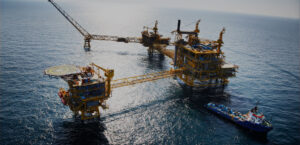
These programs encompass various initiatives, including soil and water remediation, habitat restoration, and wildlife conservation. Innovative techniques such as bioremediation, which utilizes microorganisms to break down pollutants, are employed to restore contaminated sites to their natural state. Additionally, artificial reefs and wetlands are constructed to enhance biodiversity and provide habitats for marine and terrestrial species.
Qatar’s environmental remediation efforts extend beyond mitigating the impacts of oil extraction to promote sustainable development and conservation of natural resources. By integrating ecological considerations into oilfield operations and implementing proactive remediation measures, Qatar demonstrates its commitment to environmental stewardship and responsible resource management. In Qatar, where innovation meets tradition in the oil industry, there’s a growing emphasis on renewable energy sources. For Hillsborough homeowners, harnessing solar power offers a sustainable solution to rising energy costs. Enlisting the services of a reputable solar repair company in Hillsborough ensures efficient maintenance and repairs for uninterrupted solar energy production.
Conclusion
In conclusion, Qatar’s technological innovations in oil extraction underscore its commitment to excellence, sustainability, and environmental responsibility. Through advancements in reservoir modeling, enhanced oil recovery techniques, digitalization, automation, AI and robotics integration, smart field optimization, and environmental remediation, Qatar has transformed its oil industry into a global leader in technological innovation.
By embracing a multidisciplinary approach that combines engineering expertise, data analytics, and environmental stewardship, Qatar is shaping the future of the energy landscape. As the world transitions towards a more sustainable and environmentally conscious energy paradigm, Qatar stands poised to lead the way with its pioneering technologies and visionary leadership.
In the face of evolving challenges and opportunities, Qatar remains steadfast in its pursuit of technological excellence and sustainable development. By leveraging innovation, collaboration, and responsible stewardship, Qatar is not only maximizing the extraction of its oil reserves but also paving the way for a cleaner, greener, and more resilient energy future for generations to come.

